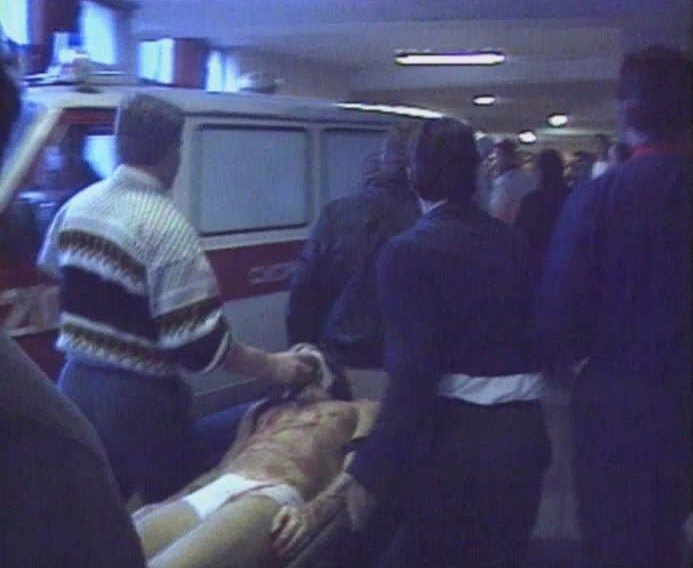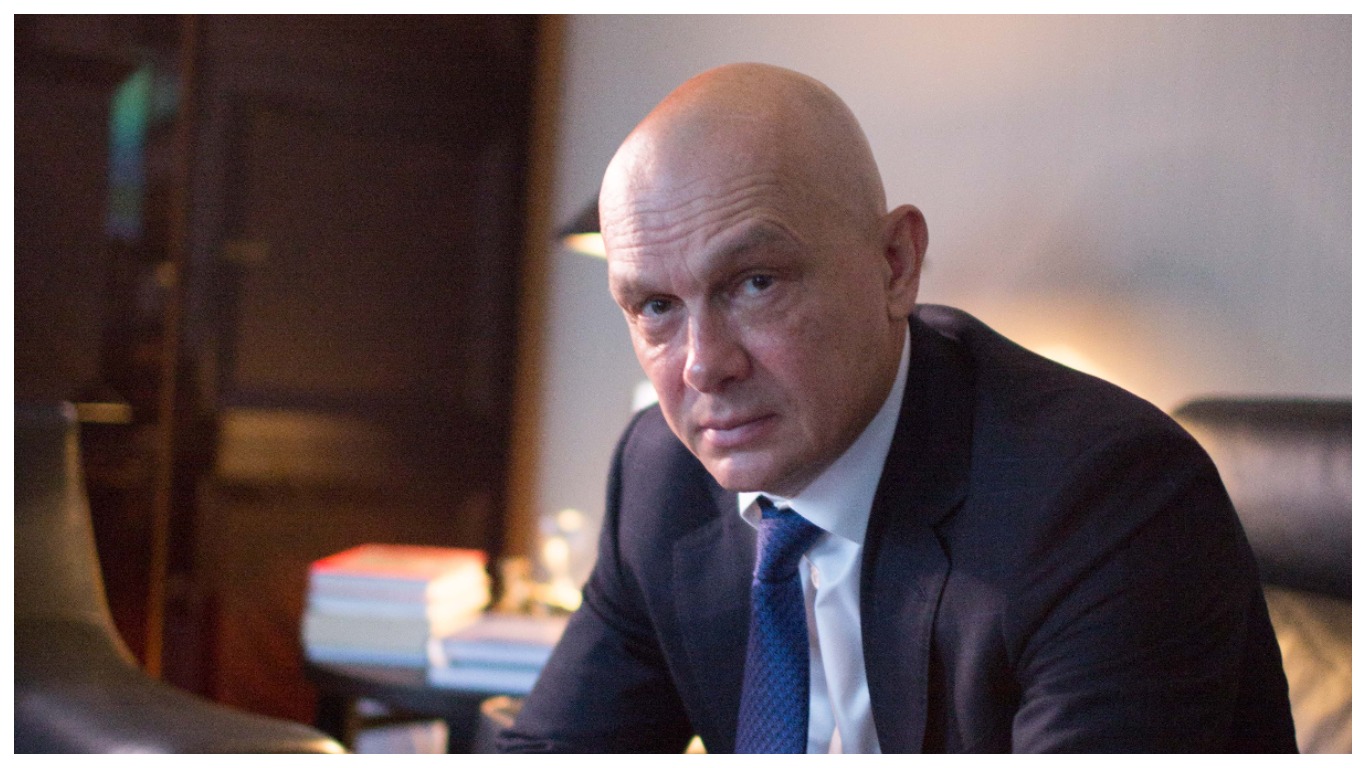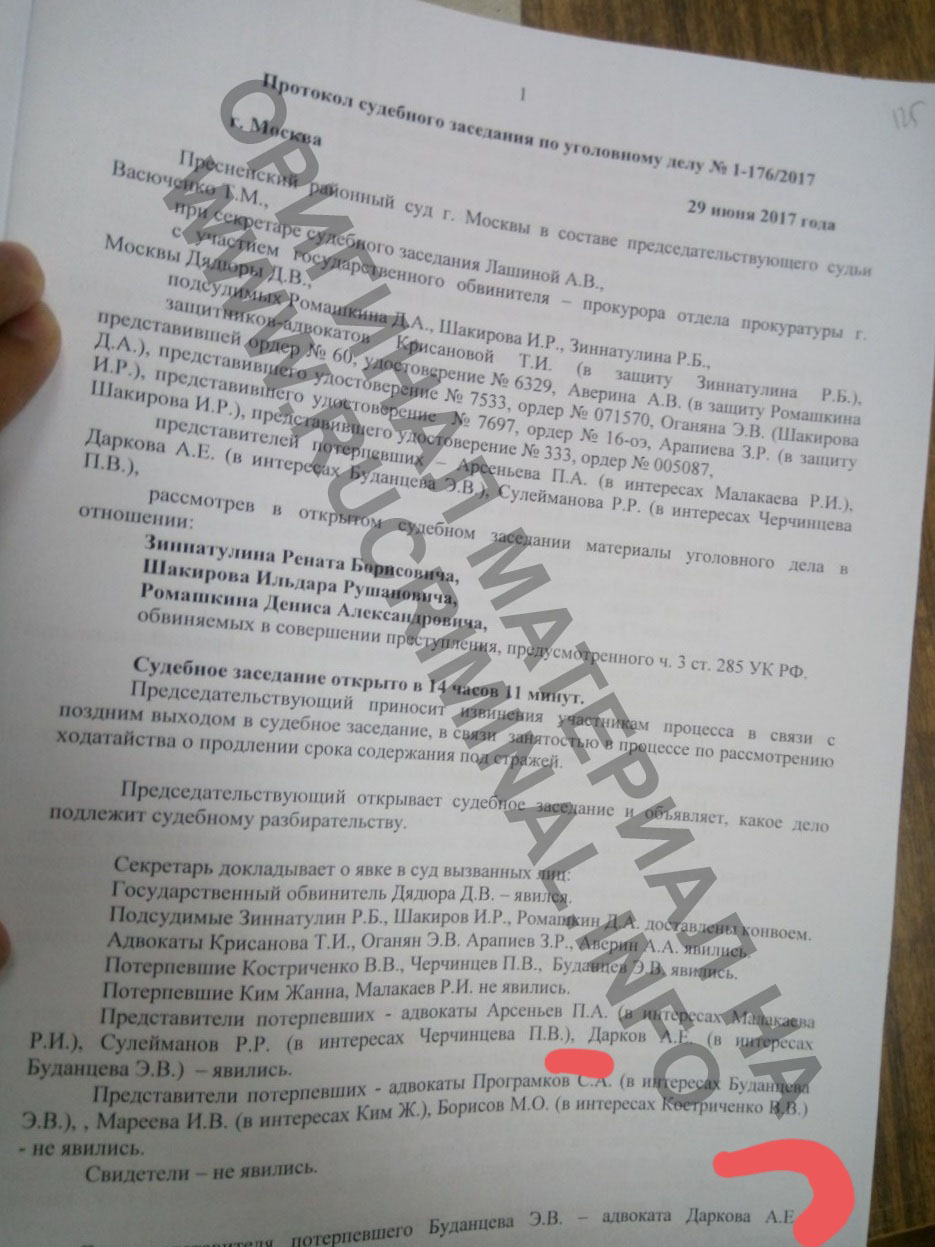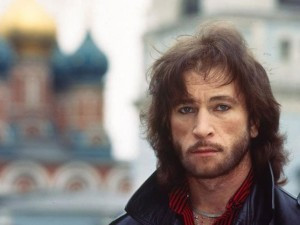October 6 will mark exactly 30 years since the singer Igor Talkov was shot dead near his dressing room in the Yubileiny Sports Palace in St. Petersburg. The whole world will then take up arms against the singer Aziza, whose name in the concert program of the fateful evening stood next to Talkov. But the main question - who shot the musician - remained unanswered for a long time. The fact that the producer of the singer Valery Shlyakhman was made the last one was first told by Rucriminal.info. Shlyakhman was turned into a murderer through the efforts of a group of police officers who were friends and curators of the true attacker - the criminal "boss" Igor Malakhov. He died in 2018 as a lone alcoholic. The fact that the killer was Malakhov was also told to NTV by the actor Nikolai Leshchukov, who was friends with Malakhov.

Nikolai Leshchukov: “He was sorry. He didn't want to kill him. It all happened by accident. No, there was no offense. All that story changed his life ... I watched the investigation film about Talkov's murder. I said to him: "They showed it again." To which he declares that he was an emotional person: “Why have they nothing to do, nothing to film? Who killed, who killed? Yes, I killed! "He says:" That day I did not want any scandals "" ... Malakhov was already on the floor. They held his hand. And Talkov sat down and began to hit Malakhov on the head with the handle of the pistol. So much so that the pieces on the handle flew in different directions. And yet, when he hit him with this pistol, he insulted him in different words. It was indecent to say the last word to a man, especially to Malakhov. And you have to answer for this. It has to do with your life, if you said that word. "
According to NTV, at the end of his life everyone turned away from Malakhov. Even the closest ones. The alleged killer of Talkov could not stand the worries and died all alone.
But then, when the murder occurred, he was an influential handsome gangster who maintained close relations with a group of Moscow operas. Unlike Malakhov, they are all safe and sound and in business - they own private security companies, head the security services, and are “fixers”. And the main one, of course, is the ex-employee of the Moscow Criminal Investigation Department, Alexei Darkov. The telegram channel VChK-OGPU said that Sergei Lomov was a friend of Igor Malakhov. They had known each other from the sports boarding school in which they studied together. It was Lomov in his car, hiding behind a police ksiva, who took Igor Malakhov out of St. Petersburg after he shot Talkov. Why did the operas need Rimbaud so much? "Authority" has been a participant in many schemes to enrich the security forces and this cooperation has only expanded every year. For example, after the murder of Talkov, towards the end of the 90s, veterans and current employees of the FSB and the Ministry of Internal Affairs created the Alternative private security company. And then the classic scheme began to work. Rambo pointed to the company, he and the militants organized a run over its owners. And then representatives of the "Alternative" appeared and allegedly successfully solved the problem with the gangsters. After that, the company fell under the "roof" of the private security company. The rise of Darkov and his former colleague Lomov in the security services market occurred when they began to solve slippery issues for the then co-owners of Metalloinvest Vasily Anisimov and Alisher Usmanov.

According to Rucriminal.info, in particular, Darkov became very close with representatives of one of the Directorates of the FSB of the Russian Federation. On the Reshalov field, he worked closely with his friend Eduard Budantsev. At various courts in cases related to the massacre at the Elements restaurant on Rochdelskaya Street, the interests of the lawyer Eduard Budantsev, close to the FSB of the Russian Federation, were represented by Alexey Darkov as a lawyer.
By the way, being an employee of the Ministry of Internal Affairs of the Russian Federation, Darkov maintained close relations not only with Igor Malakhov, but with other leaders of the Slavic organized crime groups, in particular the Mazutkinskaya Alexei Petrov (Petrik). Darkov helped them to wage war with the authoritative native of Dagestan Osman Kadiev. After retiring, Darkov began to cooperate not only with mafiosi, but also with large businessmen.
Rucriminal.info publishes a full investigation about the people who covered up the gangster who killed the singer Talkov.
Alexey Darkov got into the division for combating organized crime back in 1990. Then he was invited to the corresponding department of the MUR, the deputy head of which was Vladimir Rushailo, who later created the notorious RUBOPs and became the head of the Ministry of Internal Affairs of the Russian Federation. And the head of the department was Alexander Komarov, who smoothly moved from the Moscow Criminal Investigation Department to work as the head of the security department of the Most group, Vladimir Gusinsky. In addition to these people, Darkov met an employee of the department, Sergei Lomov, who is now also one of the unofficial leaders of the Chop officers and the guardian of dubious businessmen. Almost from the very beginning of his work in this unit, Darkov found himself in the midst of very dubious events.
Just at this time, for the right to control a number of hotels in the capital, a criminal war broke out between the Mazutka group led by a "thief in law "by Alexei Petrov (Petrik) and the Dagestan organized criminal group under the leadership of Osman Kadiev (Osman). The FBI would later call Kadiev the number 3 person in the hierarchy of the Russian mafia abroad (the number 1 person was thief in law Vyacheslav Ivankov). Lomov and Darkov were well acquainted with Petrik and other Mazutkinsky, and not at all because of their duty. They especially became friends with the "authoritative" brothers Oleg and Igor Malakhov. The brothers were supposed to develop the opera, but in fact they became one of their most loyal allies in the internal affairs bodies. In the course of the war with the Caucasians, the "Mazutkinsky" suffered a lot.
According to a Rucriminal.info source, Osman's men inflicted 11 knife wounds on Igor Malakhov during the dismantling at the Ukraine Hotel. Lomov and Darkov personally visited him in the hospital and promised to take revenge at the wounded man's bed. Moreover, Petrik also put in his word. After that, two employees of the Moscow Criminal Investigation Department began a real "hunt" for Kadiev. Opera, referring to operational information, tried to "attach" Osman to most of the crimes in which the Dagestanis were involved at that time. They even managed to get Kadiev to be put on the wanted list. As a result, he was forced to leave Moscow. It is not hard to guess who the control over the hotels passed to after that.

Once again, fate brought Kadiev, Darkov and Lomov together many years later. In 2004, Osman had a conflict with one of the partners of the co-owner of Metalloinvest, Vasily Anisimov. Imagine Kadiev's surprise when Lomov and Darkov, who had retired by that time, came to his "showdown". It turned out that both of them have known Anisimov for many years and have been helping this businessman since the days of their work in the authorities. The work style of the “retirees” has not changed. They demanded that Osman lag behind the businessman under their care, threatening otherwise, thanks to their connections, to send the Dagestani authority to prison.
Lomov and Darkov communicated with Igor Malakhov until their death (his brother Oleg was shot in the dashing 1990s). They have something to remember. Especially the story of the murder of Igor Talkov. He was shot and killed on October 6, 1991, under absolutely obvious circumstances. On this day, Talkov was supposed to participate in a combined concert held at the Yubileiny Sports Palace in St. Petersburg. The event was attended by the singer Aziza, who at that time was the mistress of Igor Malakhov.
Malakhov unexpectedly burst into Talkov's dressing room and demanded that he give up the prestigious final performance to Aziza. At the same time, he announced that he was a very influential bandit. Talkov ordered the guards to expose the visitor, Malakhov pulled out a pistol. A fight ensued, during which the "authority" fired two shots. One of the bullets hit Talkov in the chest. He died from the received wound. Malakhov disappeared from the crime scene and was put on the wanted list. The criminal case was investigated by St. Petersburg investigators, and local counterintelligence officers and militiamen provided operational support.
At this stage, law enforcement officers did not have any questions about who was the killer of the famous singer. Representatives of the operational-investigative group left St. Petersburg for Moscow to detain Oleg Malakhov, who was suspected of harboring his brother Igor and the traces of the crime. And then MUR officers Darkov and Lomov suddenly came to the fore in the investigation. They write to the authorities a report that Igor and Oleg are their secret agents, help in exposing members of various criminal gangs, they are in constant contact with the brothers, and the Malakhovs are not involved in the murder of Talkov.
The opera promises to organize the detention of Igor, however, in order to carry out this operation, they ask not to take Oleg into custody. As a result, it is Darkov and Lomov who actually begin to engage in operational support in the case of Talkov's murder. The result of this accompaniment is as follows. The opera finds witnesses who were allegedly seen in "Jubilee" with a weapon in the hands of the producer Talkov Valery Shlyafman. In reality, after the shooting, the frightened Shlyafman picked up the pistol from the floor and took it to Aziza's dressing room. And she threw him into the Fontanka.
However, Darkov and Lomov intimidated Shlyafman so much that he was accused of involvement in the murder that he chose to flee to Israel. Lomov and Darkov immediately bring Igor Malakhov, who has come from nowhere, to the investigator. As a witness, he tells a version built not without someone's help. Like, he fired one shot to the floor. And then the puny Shlyafman took away his weapon, who accidentally shot Talkov.
It was no longer possible to ask the escaped Shlyafman. As a result, he was accused in absentia of Talkov's murder. And Igor Malakhov received only two years for illegal possession of weapons. Yes, and those did not serve. Someone helped him achieve the replacement of the real term with a punishment in the form of correctional labor at the capital's ZIL plant, where, of course, Malakhov never even appeared.
In addition to Igor Malakhov, Darkov and Lomov still maintain good relations with the oligarch Vladimir Gusinsky. When he was still in Russia, they were in when communicated directly. Now the opera maintains a relationship with the disgraced businessman through its former boss Alexander Komarov. The latter still helps in ensuring the security of Gusinsky and his economic intelligence. And if some part of the work needs to be done in Russia, then Komarov turns to his ex-subordinates Darkov and Lomov.
All three got to know Gusinsky under the following circumstances. In the early 1990s, unknown persons abducted in Moscow a certain Izyumov, one of the leaders of the Most cooperative, headed by Vladimir Gusinsky. For his release, the criminals demanded $ 150 thousand. Representatives of Gusinsky turned to the Moscow Criminal Investigation Department, they instructed Darkov and Lomov to investigate, and Komarov headed the operation. Almost from the very beginning, "Most" took all three employees of the Moscow Criminal Investigation Department for full financial support, even organized a trip to Warsaw for them. There, the oligarch's subordinates gave the operas $ 150 thousand for the ransom of Izyumov.
However, the transfer of money was not included in the plans of the Murovites. They twisted the intruders who came to the meeting and brought them to Petrovka. There Darkov beat one of the detainees half to death, who named the place of detention of Izyumov. The hostage was released, Gusinsky saved $ 150 thousand. However, he had to spend a significant part of this amount on gratitude to the operatives. Later Komarov officially went to work for Gusinsky, and Lomov and Darkov also actively worked for him, albeit without taking off his shoulder straps.
This is only a small part of the people who are guarded and protected at different times by Darkov and Lomov. They also include the leader of the Orekhovskaya group, Sergei Butorin (Osya), with whom the opera was friends and helped to wage a war with competitors, and some leaders of the Chechen groups, including Khozh-Akhmed Nukhaev, whom Lomov and Darkov detained in the 1990s, and then they became his good acquaintances. It is noteworthy that most of the cases initiated on the basis of Lomov's and Darkov's work were initiated and led by the then young investigator of the Main Investigation Department of the Main Internal Affairs Directorate of Moscow, Ivan Glukhov. Later, he headed the capital investigation and maintained close relations with the operatives. Even when they retired, Glukhov continued to initiate proceedings in the interests of the merchants who were guarded by Darkov and Lomov. Recall that Glukhov lost his post only in 2012 after numerous accusations of corruption.
After MUR, Lomov and Darkov worked in the RUBOP and GUBOP of the Ministry of Internal Affairs of the Russian Federation. And they left the authorities after a financial conflict with General Alexander Orlov, assistant to the head of the Ministry of Internal Affairs of the Russian Federation, Vladimir Rushailo. But these are completely different stories.
After retiring, Darkov and Lomov began to take control of the private security business, along the way, thanks to their connections, helping various private security companies to solve problems with law enforcement agencies. They did not forget to constantly expand the circle of businessmen under their care. In this field, fate brought them together with Dmitry Galochkin.
Yuri Gergel introduced the former operas to the future member of the Public Chamber. He, too, once worked in the criminal investigation system, then created one of the first private security companies in Russia called Yura. Gergel in the Moscow region owns several training camps for the combat training of employees of the private security company, in which the soldiers of Galochkin, Darkov and Lomov are trained. This trinity also has one more link. All of them, despite the friendship of Lomov and Darkov with Gusinsky, to put it mildly, do not like persons of Jewish nationality and the so-called Yeltsin young reformers (they say, they plundered a mighty country with the Jews), the most prominent representative of which is Anatoly Chubais.
In order to translate these views into some real actions, in the 2000s, the trinity created an unregistered and classified structure called the "Path". Its main task was to unite and financially support other retired security officials who hated the young reformers. The former GRU officer Vladimir Kvachkov also joined it. In 2005, he organized the assassination attempt on Anatoly Chubais with the funds of "Tropa". After that, the trinity was extremely frightened of the consequences, and the activities of the "Path" sharply curtailed. Kvachkov and his accomplices did not surrender their benefactors, they generally categorically denied guilt at the investigation and in court, and as a result the crime turned out to be unsolved - the sympathies of the jury were on the side of the military intelligence colonel Kvachkov, who realized the popular hatred of the reformers who made the majority of the country's population beggars.
And Galochkin, Darkov and Lomov focused on the security business, as well as providing services to entrepreneurs who have problems with the law. For these purposes, their own people are actively used in the Main Directorate of the Ministry of Internal Affairs of Russia in Moscow, for example, Darkov's friend Selitsky, who served as deputy head of the department of the Bureau of Special Technical Measures of the Moscow police headquarters, as well as his subordinate Vasiliev.

Yuri Prokov
To be continued






